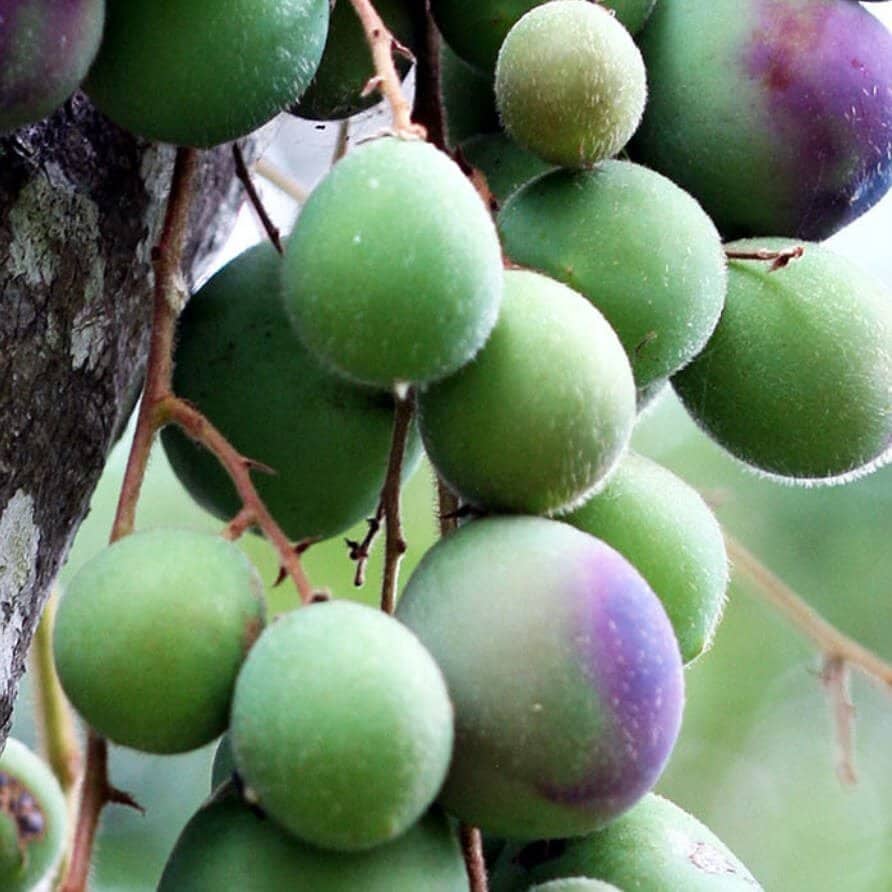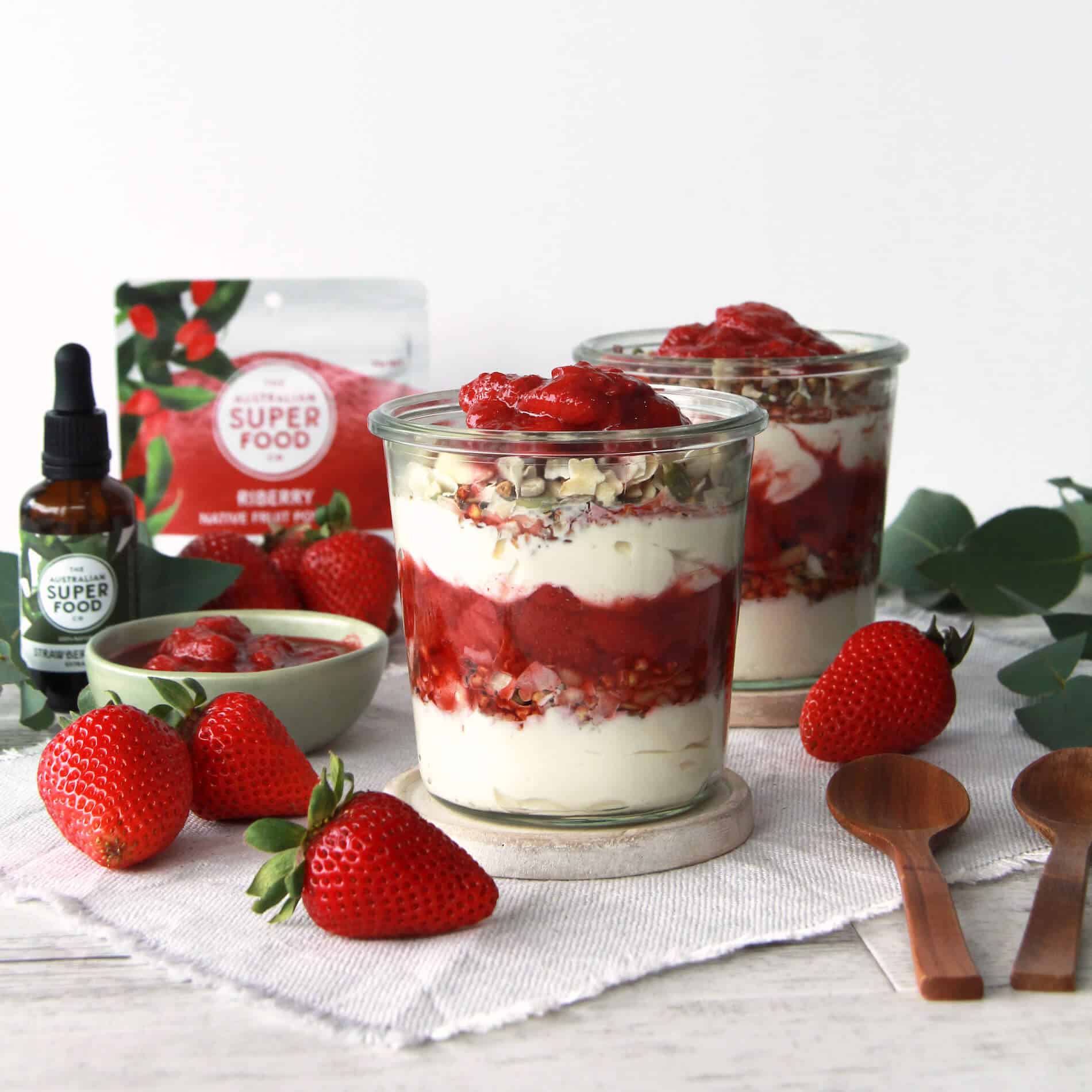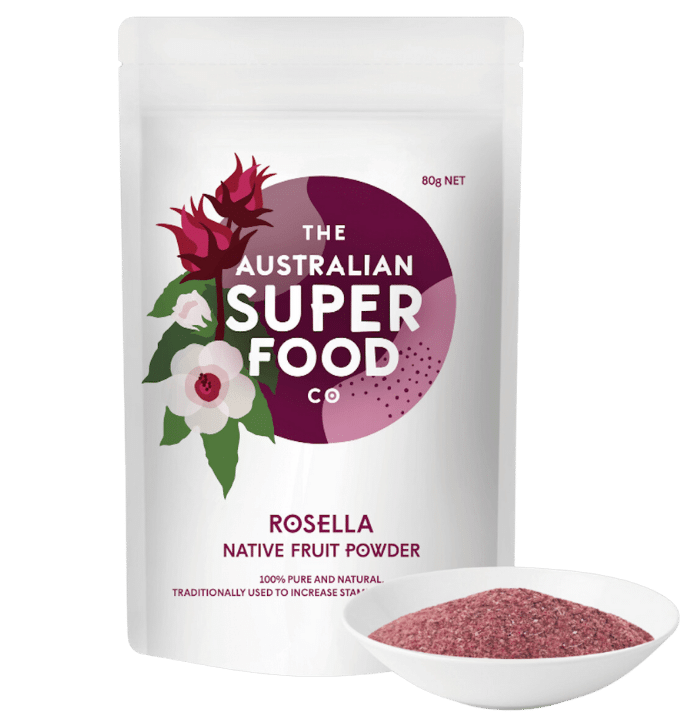Rosellas (also known as Hibiscus Sabdariffa) are a type of hibiscus growing wild across the top end of Australia on the fringes of rainforests and in the sand dunes.
Rosella was not originally native to Australia; they were introduced thousands of years ago from Africa. Nonetheless, the shiny red plum-like fruit were used by Indigenous Australians for generations as a form of nourishment and medicine, given their high antioxidant properties. Traditionally, the fibre from the bark was used to make dilli bags, twine and hunting nets.
Planted during spring as the weather warms up, rosellas are harvested through March and April.
Download The Australian Superfood Co provenance map here.
Flavour:
Refreshing, crisp and tart, berry and rhubarb taste with very subtle notes of passionfruit.
Palate:
A deliciously delicate flavour, with refreshing, tart, berry and rhubarb notes on the tongue and front palate, and lingering, diluted passionfruit notes.
Aroma:
Very subtle, yet pleasant aroma of berries and diluted passionfruit with spiced honey notes.
Rosella has been used all over the world for many years for both their delicious, delicate flavour and health benefits. Its tart berry and rhubarb flavour combines well with sugar to create a light, sweet syrup that is perfect in champagne and cocktails.
Rosella is extremely versatile and is commonly used in baked goods, desserts, white chocolate, sorbets and ice cream. Rosella perfectly complements a variety of fruit, particularly most other berries, apple, pear, citrus, tropical (banana, mango, papaya, pineapple), some stone fruit and coconut.
Use rosella in savoury and sweet sauces, chutneys, and aioli to add rich colour and an unusual fruity, berry sweetness. It works well with ginger, garlic and chilli, and makes a great marinade with olive oil and sea salt for root vegetables, enhancing the flavour of roasted sweet potato, pumpkin, beetroot, carrot, turnip, parsnip.
Rosella also pairs well with dairy (yoghurt, most cheese varieties and cream), oil and vinegar-based meat marinades and salad dressings, meat-based jus and egg-based condiments.
Rosella pairs really nicely with white fish, chicken, pork and lamb, and is perfect for game meat such as emu, crocodile, kangaroo and venison.
Rosella lifts the profile of alcoholic beverages such as gin, vodka and white rum, and adds a sweet, refreshing twist to soda, tonic, mineral waters and lemonade.










